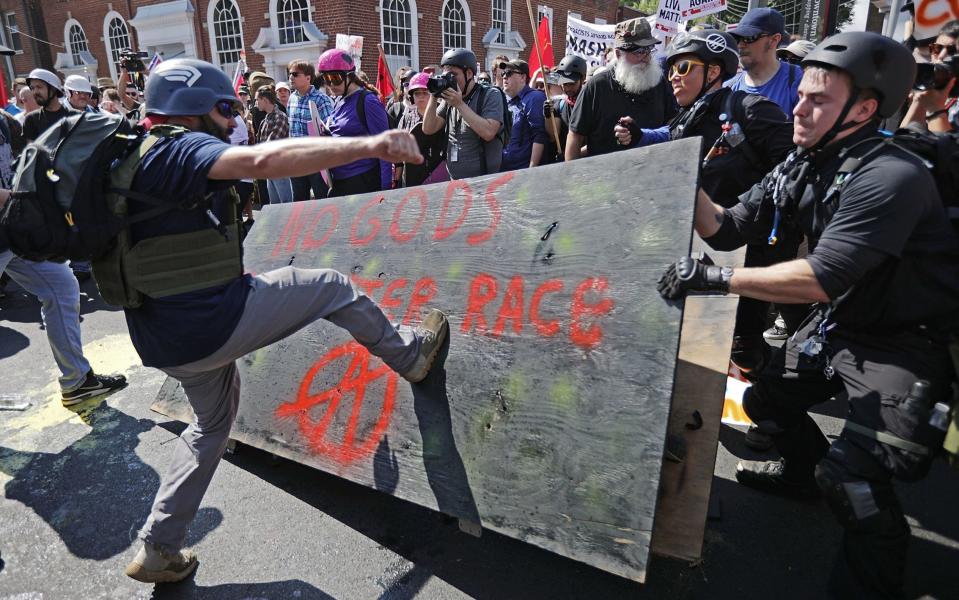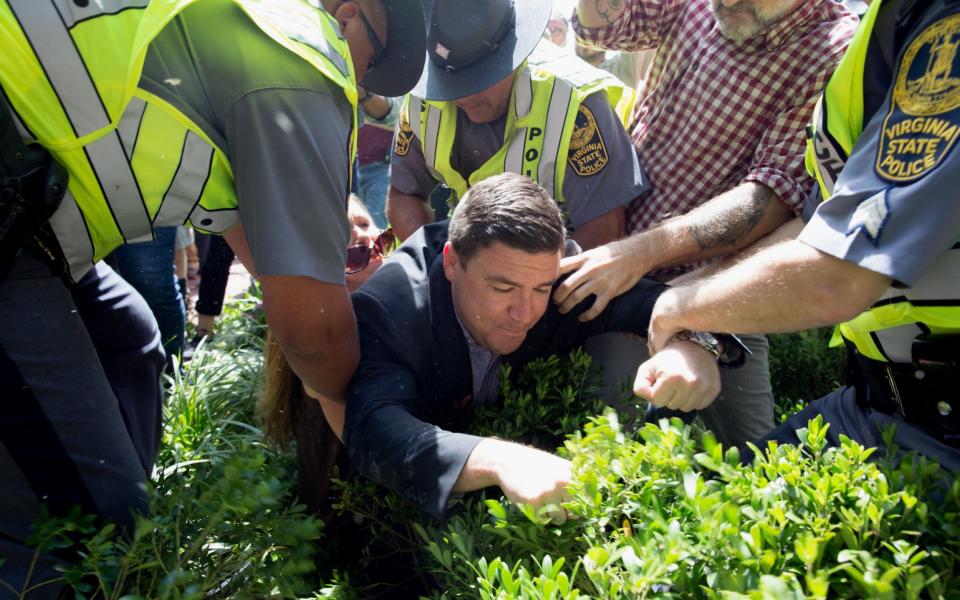Twitter could deny 'blue tick' verification for public figures who spread 'hateful content'

Twitter could deny its coveted blue tick badges to celebrities, politicians and activists who break its rules on hate speech and misinformation when it opens up its verification system again next year.
The social network suspended all public applications for the badges in 2017 after being accused of endorsing extremism by awarding verified status to an avowed neo-Nazi.
But on Tuesday, Twitter said that it would relaunch the system in early 2021 with detailed new requirements that could freeze out those who have recently been punished by the company's moderators.
The proposed criteria, which are still open to public consultation, would allow Twitter to deny verification to users judged to have participated in coordinated disinformation or harassment campaigns, built their audience using fake accounts, or spread "hateful content" attacking minority groups.
It could also block those who have had their accounts locked in the past six months for breaking Twitter's rules, including by tweeting coronavirus hoaxes or false claims about election processes.
Applications would be open to companies, charities, journalists, celebrities and sports stars, as well as activists and other "influential individuals" who have a large number of followers or can prove that they have created widespread debate.
Previously, Twitter had only said that it might strip users of their verified status if they misbehaved.
We're planning to relaunch verification in 2021, but first we want to hear from you.
Help us shape our approach to verification on Twitter by letting us know what you think. Take a look at our draft policy and submit your #VerificationFeedback here: https://t.co/0vmrpVtXGJ— Twitter Support (@TwitterSupport) November 24, 2020
Twitter said: "Three years ago, we paused our public verification program after hearing feedback that it felt arbitrary and confusing to many people.
"Since then, we haven’t been clear about who can become verified and when, why an account might be unverified, or what it means to be verified.
"We know... that this initial policy won’t cover every case for being verified – but it is a critical first step in helping us provide more transparency and fairer standards."
The company added that it would begin automatically removing verified badges from inactive profiles, warning that "there are many verified accounts on Twitter who should not be".
Twitter began verifying public figures in 2009, placing a blue check mark next to their names to show that they were who they appeared to be. That year it had been sued by Tony La Russa, then the manager of the St Louis Cardinals baseball team, over an impersonator using his name.
The icon quickly became a status symbol and an object of resentment, with some users referring derisively to "blue ticks" as a shorthand for celebrities, pundits and experts perceived to be out of touch.

Twitter's decision in 2016 to accept public applications led to a surge of new blue ticks, eventually pushing the company into pausing the programme and revoking the badges of far-Right leaders such as Tommy Robinson and Richard Spencer.
"Verification was meant to authenticate identity and voice, but it is interpreted as an endorsement or an indicator of importance," Twitter said at the time. "We recognise that we have created this confusion and need to resolve it."
Yet Twitter did not fully restore the programme for another three years, even as it continued to verify some users via backchannels or at its discretion, including the parents of its chief executive Jack Dorsey. That led to criticism that the process had become opaque and unaccountable.
The proposed new rules give Twitter broad discretion to deny verification. For example, the company might still verify accounts despite bad behaviour because they are especially vulnerable to being impersonated.
3 / This perception became worse when we opened up verification for public submissions and verified people who we in no way endorse.
— Twitter Support (@TwitterSupport) November 15, 2017
We should’ve communicated faster on this (yesterday): our agents have been following our verification policy correctly, but we realized some time ago the system is broken and needs to be reconsidered. And we failed by not doing anything about it. Working now to fix faster. https://t.co/wVbfYJntHj
— jack (@jack) November 9, 2017
The rules say that users will become ineligible for verification if they have had their accounts locked by Twitter for more than 12 hours in the past six months. In the past, Twitter has locked accounts run by Donald Trump's election campaign, his press secretary and his eldest son Don Jr.
The rules could also deny politicians who have been found guilty of "gross human rights violations", as well as those who have engaged in "hateful content", which Twitter defines as an attack on protected characteristics such as race, sex, gender identity, sexual orientation, religion, age, disability and immigrant status.
The same rule says the company may block applicants who have engaged in "coordinated harmful activity" – Twitter's term for networks of real or fake accounts that work together to incite violence, generate harassment or spread false claims about Covid-19 or election procedures.
